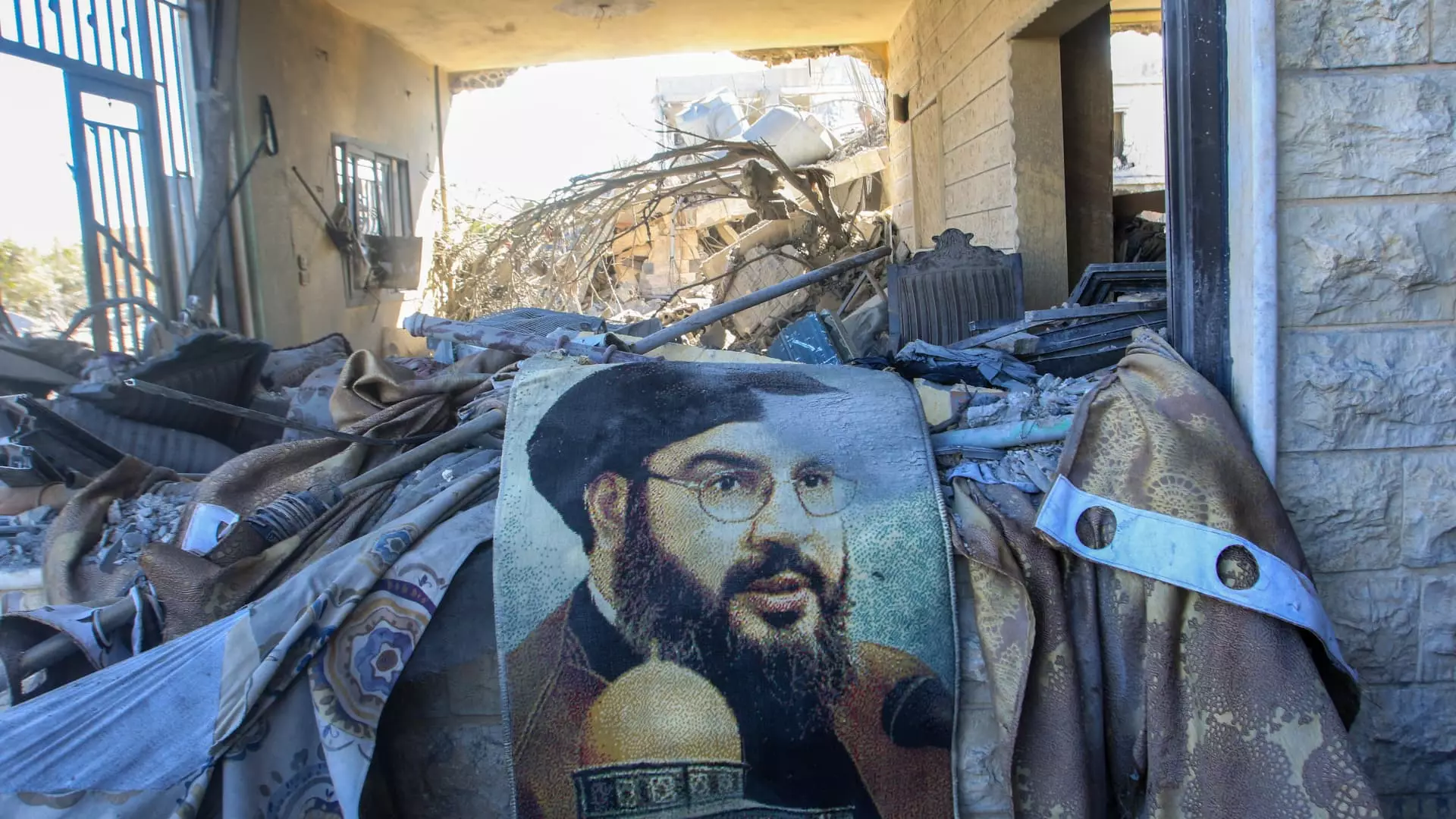The recent announcement by the Israeli Defense Forces (IDF) regarding the alleged assassination of Hassan Nasrallah, the long-time leader of Hezbollah, marks a watershed moment in regional politics. Given the backdrop of ongoing conflict between Israel and Hezbollah, this news has far-reaching implications not merely for the organization in question but also for Lebanon and broader Middle Eastern dynamics. Acknowledging the superlative significance of this incident requires a nuanced analysis of the motivations behind Israel’s actions, the psychological aftermath for Hezbollah, and the impact on Lebanon’s intricate political landscape.
The IDF’s proclamation that Nasrallah was killed in a targeted airstrike on Hezbollah’s headquarters in Beirut comes at a critical juncture in the group’s history. Having led Hezbollah since 1992, Nasrallah was pivotal in transforming the organization from a local militia into a formidable paramilitary force with significant political clout in Lebanon and beyond. Analysts suggest that his death could catalyze a power vacuum within Hezbollah. Ronnie Chatah, a Lebanese political analyst, argues that without Nasrallah, the organization is stripped of its comprehensive authority, a point that raises critical questions about its future trajectory.
The death of a leader who was not only a military figure but a symbolic one too cannot be understated. Nasrallah was often seen as the face of resistance against Israeli actions and Western intervention in the region. In his absence, Hezbollah might find itself grappling with internal divisions as factions vie for power. The intricate leadership dynamics will likely expose fractures within the organization that were submerged under Nasrallah’s dominant leadership.
The psychological ramifications of Nasrallah’s death extend beyond Hezbollah’s operational capabilities; they resonate throughout the Shia community and the wider Arab world. As noted by various experts, including Firas Maksad from the Middle East Institute, Nasrallah represented an iconic figure within Iran’s regional axis. His assassination could create an ideological schism that might destabilize existing alliances and reshape political loyalties.
Chatah posits that the psychological shock experienced by Hezbollah will be monumental. Nasrallah’s presence not only provided cohesion to the organization but also acted as a galvanizing force among its supporters. Consequently, the loss could diminish recruitment efforts, weaken morale, and lead to an existential crisis for the group. The blow to its narrative of resistance is palpable and presents an opportunity for both adversaries and internal dissenters to exploit the perceived weakness.
Regional and Global Implications
The ramifications of Nasrallah’s death are not confined to Lebanon; they extend into the broader geopolitical arena. Observers warn of escalating tensions, particularly between Israel and Iran, as well as potential fallout among Hezbollah’s regional allies. Drawing parallels between Nasrallah’s killing and other significant assassinations in the Middle East, analysts suggest that this could rekindle conflict in a region already fraught with volatility.
The immediate behavior of Iran will be critical to watch. As an ally of Hezbollah, Tehran may view Nasrallah’s death as a direct affront and respond decisively to demonstrate its commitment to its regional proxies. This could manifest in heightened military engagement or political maneuvers to shore up support within Lebanon’s southern regions, as well as increased support for Hezbollah’s operations.
The Future of Lebanon’s Political Landscape
Moving beyond Hezbollah, Lebanon’s already fragile political structure faces new challenges. Nasrallah’s absence raises pressing questions about the Shia community’s influence within the Lebanese political framework. Analysts predict an uptick in political polarization, further complicating the already tenuous sectarian fabric of Lebanese society. The potential for unrest becomes more pronounced as various factions vie for control and influence, turning Lebanon into a potential flashpoint for broader regional confrontations.
The potential death of Hassan Nasrallah represents a seismic shift in Middle Eastern geopolitics. The implications for Hezbollah, the Shia community in Lebanon, and the intricate political dynamics of the region cannot be overstated. As analysts and policymakers contemplate the future, one can only speculate whether this moment will bring an era of transformation or merely another chapter of conflict in a long-standing saga. The coming months will undoubtedly reveal the depth of this incident’s impact, signaling either the end of an era for Hezbollah or the beginning of a new, unpredictable phase of resistance and conflict in the Levant.



Leave a Reply